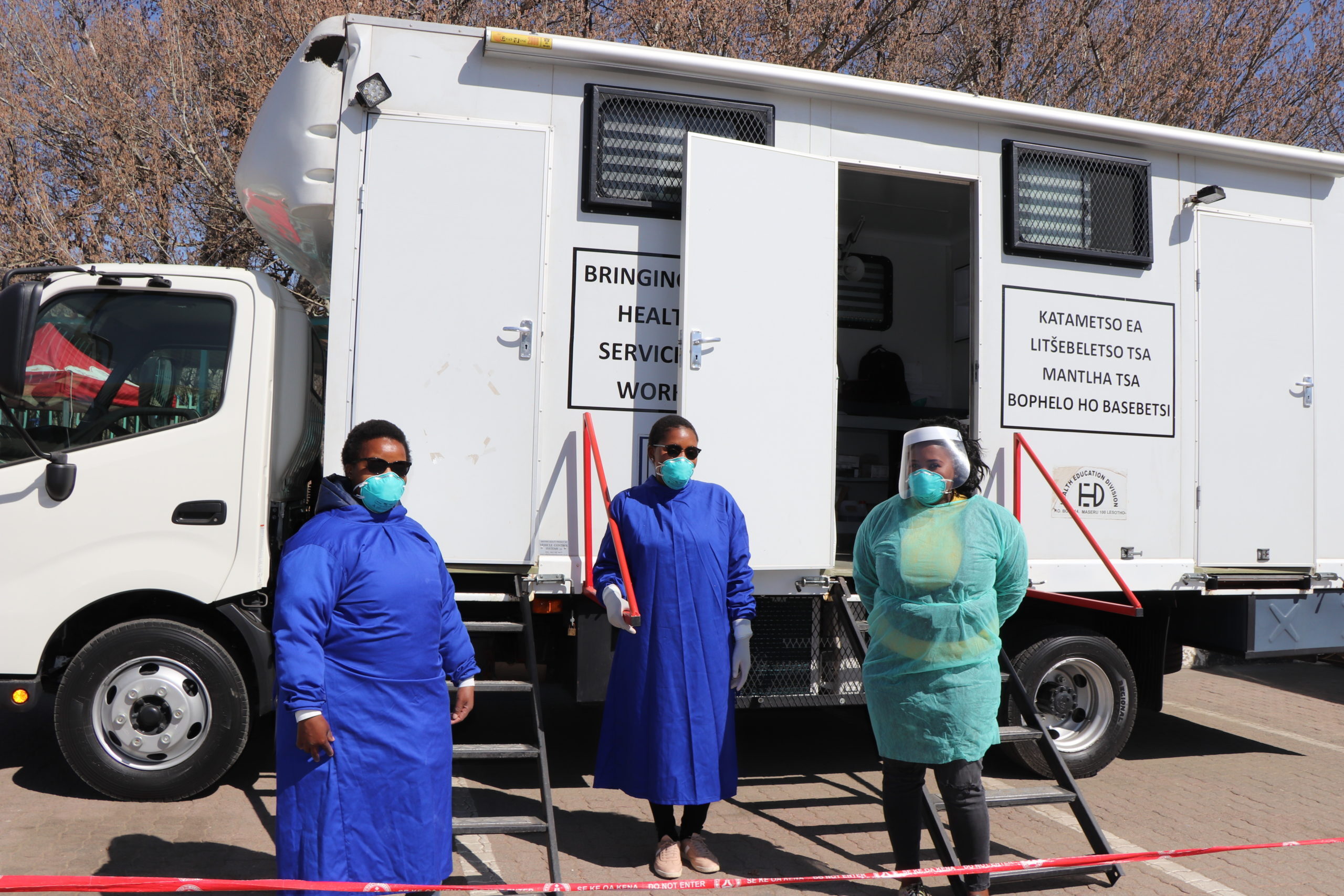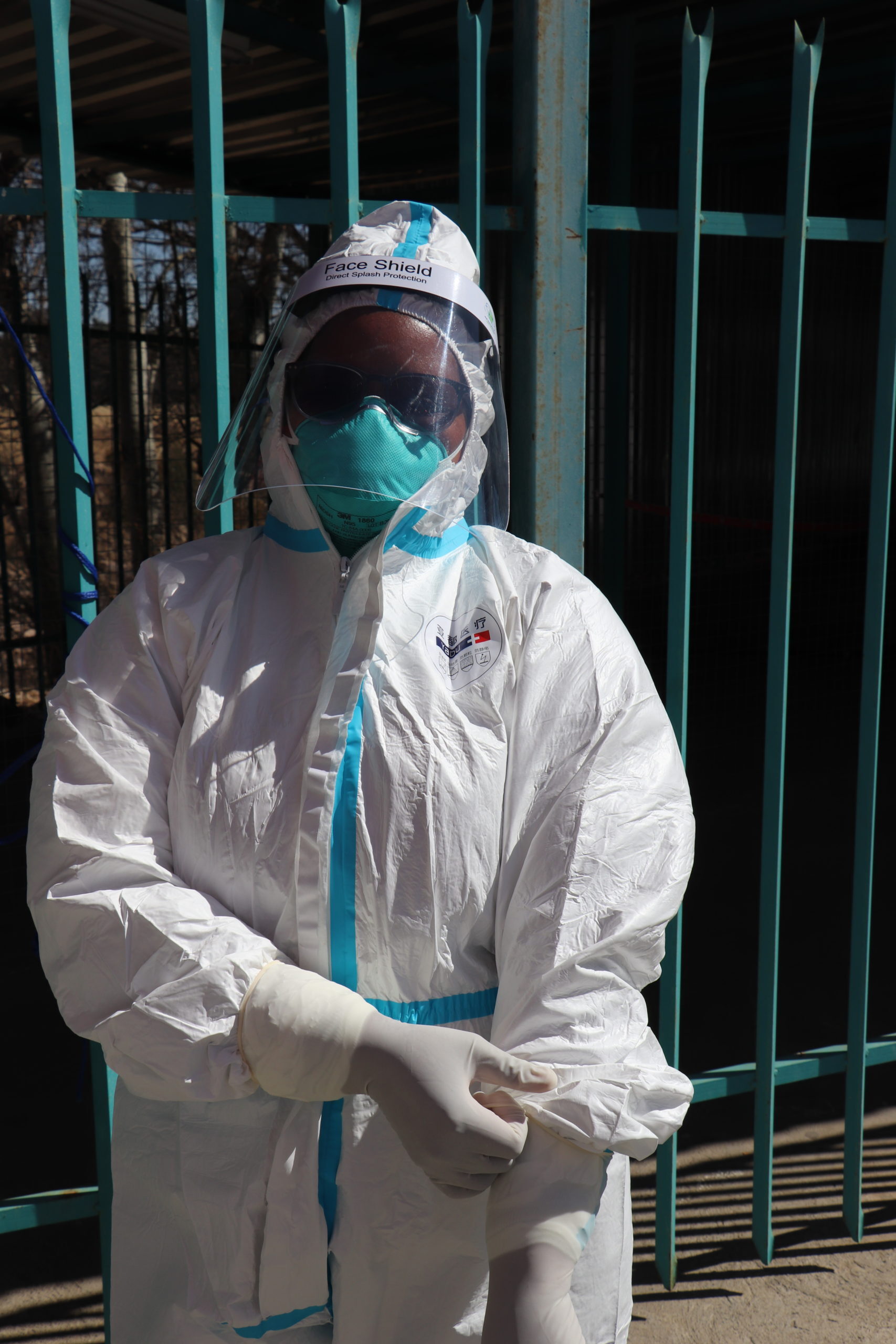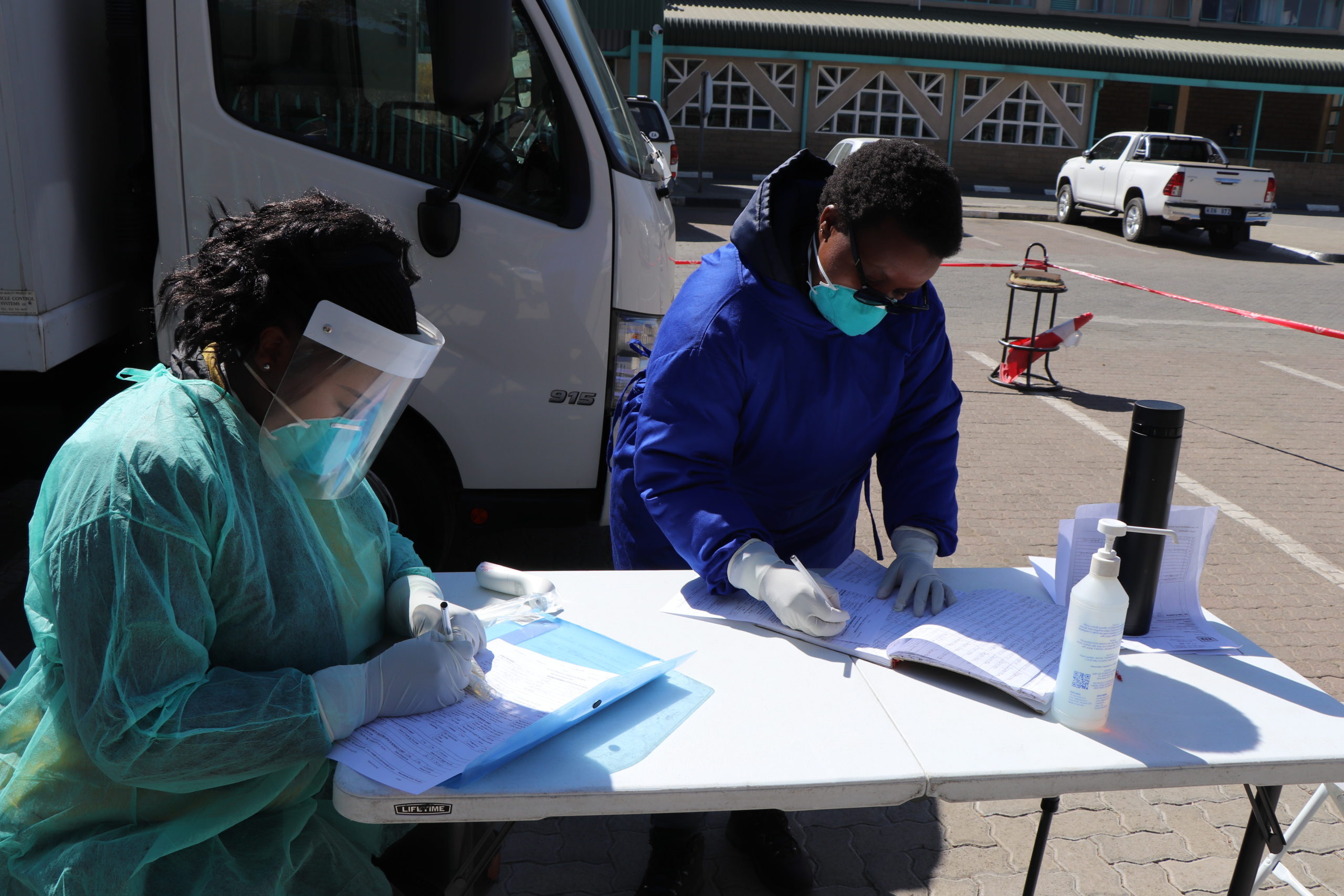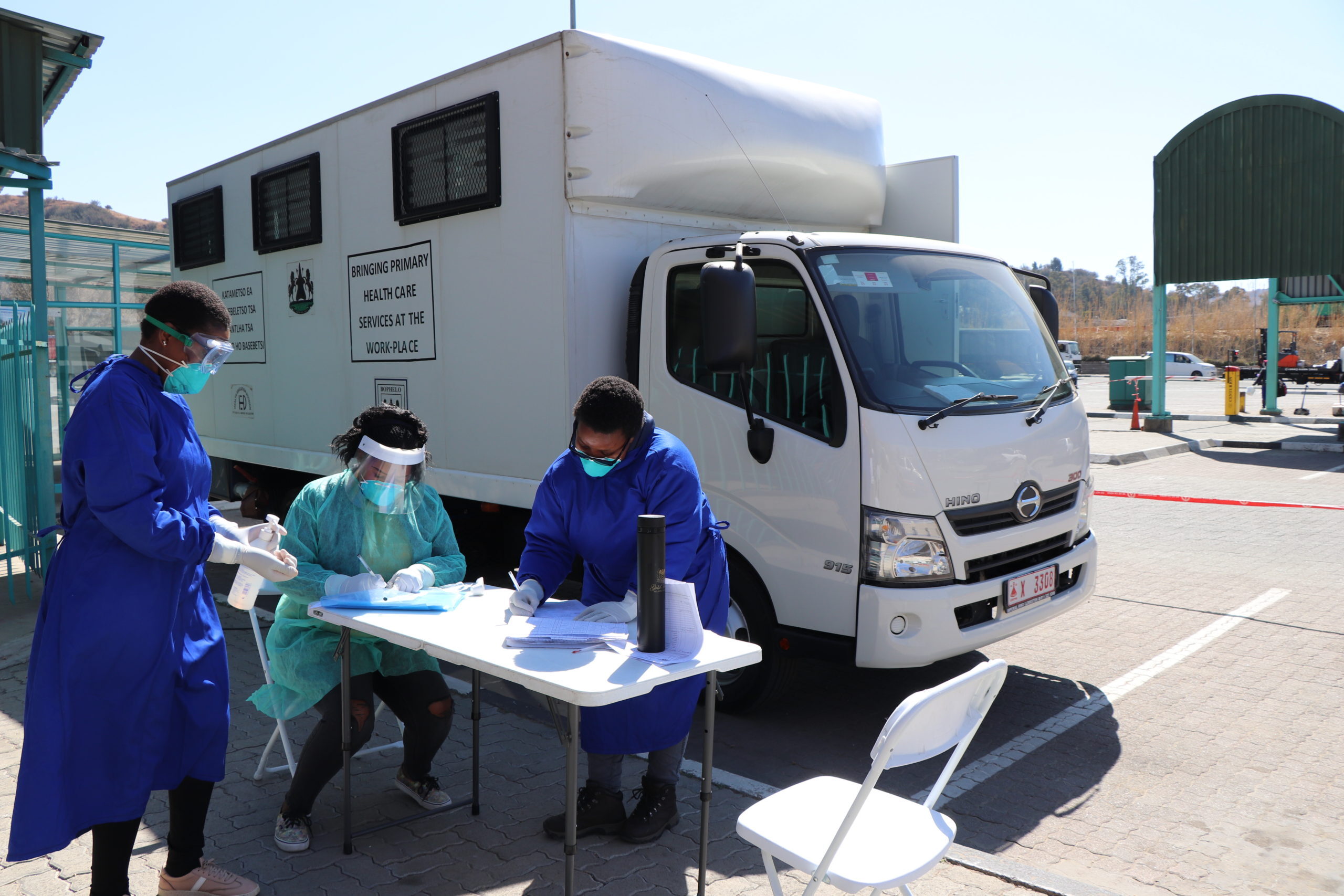In October 2020, we are coming together virtually with partners and supporters for our annual A Time for Heroes.
You can be a hero too: learn more about how to support.
#HeroesHelpingHeroes
Lesotho was the last country in Africa to report cases of COVID-19 during the global pandemic. Despite its small size, Lesotho faces a particular challenge in containing the virus due to being completely landlocked by South Africa. Four-hundred thousand Basotho are believed to be residing in South Africa. Most cross the borders for domestic work, farm work, factory work, construction work and to drive trucks.

Due to a rapid increase of coronavirus cases, South Africa went into national lockdown on March 26, imposing travel restrictions, closing its borders, and shutting down all non-essential services. The Lesotho government soon followed, with a national lockdown starting from March 29th. The South Africa national lockdown decision greatly affected the Basotho who work in South Africa, as most lost their jobs.
Many Basotho in South Africa experienced hunger due to loss of income. Those individuals living with HIV cried for help to refill their antiretroviral (ARV) prescriptions. Under normal circumstances, migrants living with HIV have been able to cross the border to come for their clinic appointments, to collect their refills, or they call upon family members who can pick up their prescriptions and bring them across the border to South Africa.
Under the new travel restrictions, Basotho living with HIV were trapped in South Africa and unable to access their ARVs. Without that vital medicine, they cannot suppress HIV, and they face serious illness and possibility of death. Without effective treatment, an immune system weakened by HIV, is much more susceptible to severe coronavirus disease and other opportunistic infections.
Under the new travel restrictions, Basotho living with HIV were trapped in South Africa and unable to access their ARVs. Without that vital medicine, they cannot suppress HIV.
Despite closing of borders between the two countries, Lesotho experienced an influx of Basotho returning home through illegal borders crossings.
By June, Lesotho acquired the resources and training necessary to begin conducting COVID-19 testing. The Lesotho Ministry of Health deployed mobile clinics to three official border posts— Maseru, Mafeteng, and Maputsoe—to conduct COVID-19 screening and testing, along with providing HIV and TB services. These mobile clinics also provide multi-month dispensing of ARVs for all eligible people living with HIV and link patients to their local clinics.

The Elizabeth Glaser Pediatric AIDS Foundation (EGPAF) has been a key clinical partner of the Ministry of Health in providing comprehensive HIV and TB in Lesotho since 2004, with the support of the U.S. President’s Emergency Plan for AIDS Relief (PEPFAR). This partnership has proven essential in responding to COVID and HIV at the border.
Prior to the COVID-19 crisis, EGPAF’s Community ART Initiation (CAI) program was working alongside Population Service International (PSI) to conduct HIV tests and ART initiation at walk-up sites in the community. Those who tested positive were provided with two weeks of ARVs and linked to a local clinic.
As the coronavirus pandemic grew, EPGAF trained these teams on COVID-19 screening and testing. In June, the CAI teams were deployed to the border with an added task of screening and testing for COVID-19. In order to minimize the risk of COVID 19 transmission, the team was provided with a regular supply of PPE.

Initially when the team was deployed to the border, all results were coming back negative. But as they started receiving positive results, fear increased among health workers.
“Fear mounted, and we requested psychosocial support from our supervisors,” says HIV Clinical Nurse Tebello Ntsane.
The Maseru border response team received psychosocial support from a psychologist from South Africa via INOVA, an EGPAF staff welfare support program.
“It was a group counseling and it gave us hope to continue as frontline workers, despite the deadly virus,” says Ntsane confidently. “We had to accept that the COVID-19 is here and it is not going to go away anytime soon, but we have to learn to adapt to new normal of putting on personal protective equipment (PPE), washing hands or sanitizing, and maintaining social distancing—and life goes on.”
Thanks to the counseling, fear was alleviated among the health workers, and they reported back to work feeling much better.
The Maseru border group was again shaken when, later, one of their team members tested positive for COVID-19. The other five went on a 14-day quarantine. Each one was isolated in her or his own room and given food through a window to reduce the possibility of transmission. The team completed the two weeks without any symptoms and were released. The team is now back to work.
“We are frontline workers, and our mission is to serve HIV and TB clients as well as to screen and test COVID-19.” Malehloa Morojele, Maseru Border Adherence Counselor
“We are now stronger than before and more careful to ensure we protect ourselves. We are frontline workers, and our mission is to serve HIV and TB clients as well as to screen and test COVID-19 from travelers arriving from South Africa,” says Maseru Border Adherence Counselor Malehloa Morojele.
“Our major success at the border response is being able to link ART clients to their clinics where they were reported as lost to follow-up and now are recorded as active in care,” explains Makuili Zwane, HIV clinical nurse at Vanrooyens border gate in Mafeteng district.

Zwane says that if they meet ART defaulters, they link them to their original local facilities. Then after some time they follow up with the clinics to confirm that the clients have been reported active at their clinic.
The team also mentioned several challenges that they continue to face including the delay of COVID-19 testing results not only at border response but countrywide, which currently take two to three weeks.
EGPAF Senior Human Resources Business Partner Sechaba Makhabane says that psychosocial support is provided to individual and group health care workers on request. He says that COVID-affected members received support from a national health care workers support group network.

“Out of 13 COVID-confirmed EGPAF staff, four of them benefited from the support received from the group,” Makhabane says.
EGPAF Country Director Ts’epang Mohlomi has repeatedly made it clear to the field teams that their wellbeing matters:
“It is our responsibility to ensure you have the necessary tools to enable you to do your work in a safe environment because you are indeed our heroes.” Ts’epang Mohlomi, EGPAF-Lesotho Country Director
“Your safety and protection are our top priority. In any situation where you do not have the PPE that is aligned to the tasks that you have to perform, do reach out to your supervisors so that these issues are escalated to our attention. It is our responsibility to ensure you have the necessary tools to enable you to do your work in a safe environment because you are indeed our heroes.”
This story was originally published in print in the the Public Eye newspaper, Lesotho.



